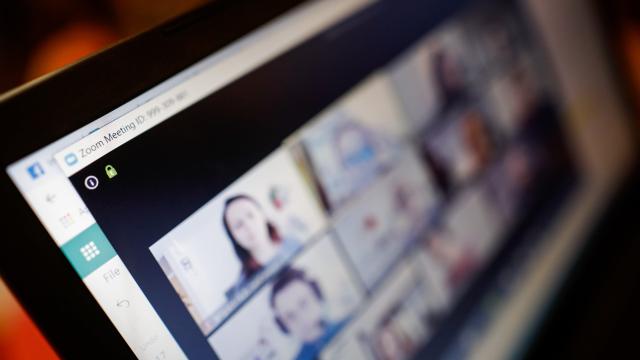As a journalist and content writer, I often have to go on Zoom calls every day with clients and interview sources who request to use this platform. I am also hard-of-hearing, which makes following what people say on calls tiring, due to listening fatigue.
Automated captions help me do my job. It is difficult to be prepared to answer a client’s question or provide a follow-up when I am concentrating on understanding everything that a person says. While automated captions do not remove all barriers I face as a hard-of-hearing journalist, it does make my job a bit easier. This is why I tweeted on Monday that it is ableist that Zoom does not have free captions, unlike the platforms Google Meet, Microsoft Teams, and Skype.
Until yesterday, Zoom did not offer closed captions on free accounts which is very necessary for the Deaf and hard of hearing community, people with auditory processing issues, and second language learners. Automated captions — while they do have their flaws, especially with foreign accents — help people like me catch more of what people are talking about.
Zoom issued a statement to me late last night in the form of a link to a brand-new public blog post, after an inquiry for this piece. I’ve been thinking and talking about this publicly for some time. Zoom plans to roll out live captions to everyone in Fall 2021, but people can now fill out live transcript access requests. I jumped on filling out the form — which was temporarily closed to the public when the blog post went live for at least 10 minutes — and now I am waiting for one to two weeks to get access to live transcripts.
I am happy that Zoom is making this change, but it should not have taken this long. While in its statement, Zoom claims that they made this change to “provide a platform that is accessible to all of the diverse communities we serve,” public pressure likely played a role in this change. This includes a petition about Zoom that hearing loss advocate Shari Eberts created on Change.org which has accumulated over 80,000 signatures as of this morning and a class-action lawsuit against Zoom from people with hearing loss who have had to pay for captioning.
Zoom is not the only company or organisation that has failed to accommodate hard of hearing and Deaf people throughout the pandemic. In fact, failing to accommodate hard of hearing and Deaf people seems to be a rare bi-partisan problem. Both New York Governor Andrew Cuomo and former U.S. President Donald Trump’s White House failed to have American Sign Language interpreters at their covid-19 briefings.
One argument that I have heard again and again from people who are not hard of hearing or Deaf defending Zoom not having free captions is that I should just get my company to grant me a paid account. This frustrates me for numerous reasons. Deaf people are disproportionately unemployed. According to the National Deaf Centre and Postsecondary Outcomes, 53.3% of Deaf people ages 25-64 were employed in 2017, versus 75.8% of hearing people. Even if Deaf people are unemployed or underemployed, they should still have the same access to this essential technology without having to pay. I am also a freelancer, which means I have to pay for my own business expenses. I should not have to pay for equal access because of my disability, which many hard of hearing and Deaf people have been doing to have adequate accommodations over Zoom. Zoom’s past failure to realise the necessity of captions for the hard of hearing and Deaf community also makes me question how many disabled people are on their team.
Non-disabled people often do not recognise the importance of accommodations. Just last week, a California college professor was seen on TikTok berating a hard-of-hearing student for not responding in a way he considered to be appropriate, and for how the student interacted with their interpreter off-screen. I could not help but notice that the Zoom video did not have free captions either at this time. Virtual learning for heard of hearing and the Deaf community has come with its unique challenges, and I am happy that I only had to do my final semester remotely.
Disabled people need accessibility, but we also need non-disabled people to realise why giving us accommodations should not be optional.
It frustrates me that the disability community has to pressure tech companies and even the government to be inclusive. Navigating the world as a hard-of-hearing person is tiring due to inaccessibility, and it is also tiring to have to fight for my rights to accessibility.
@metraux_julia and read more of her work here.
